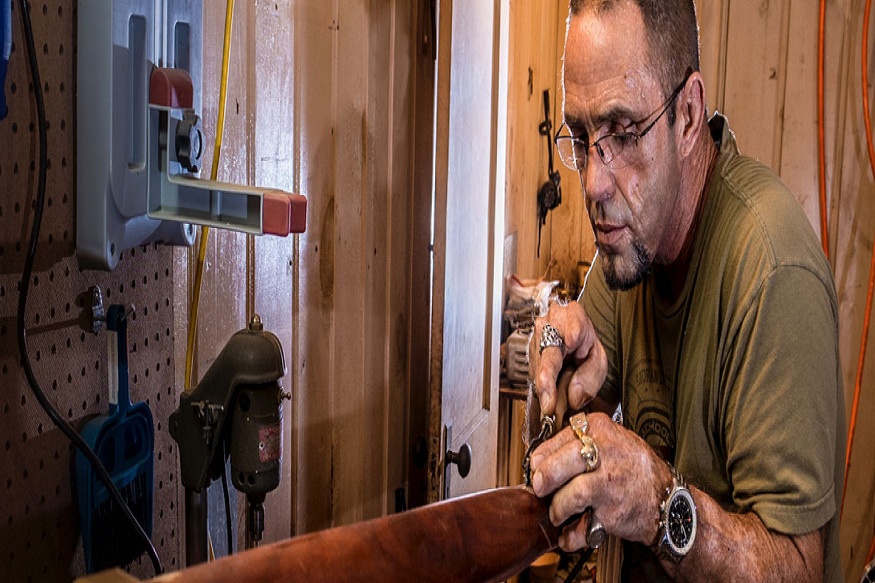For years, job seekers were told that where they went to college would define their future. Prestigious institutions carried weight,brand names opened doors and diplomas were treated as stand-ins for capability. But in today’s job market, the narrative is changing. Sonoran Desert Institute (SDI), accredited by the Distance Education Accrediting Commission (DEAC), affirms that employers are shifting their focus from academic pedigree to demonstrated skill, and this shift is creating opportunities for a new generation of learners trained through vocational and certification-based programs.
Today’s workplace places greater emphasis on performance than prestige. Employers want to know not just where someone studied, but what they can actually do. In a fast-moving economy shaped by technology, innovation and labor shortages, problem-solving skills matter more than the name on a diploma. This shift is reshaping the definition of qualifications and changing how people prepare for their careers.
Credentials Without Context Are No Longer Enough
It’s not that degrees are irrelevant, but their standalone value is no longer guaranteed. A degree without relevant experience, practical training or applicable skills doesn’t offer the same advantage it once did. Employers want to see competence in action, proof that a candidate can do the job, not just theorize about it.
It is especially true in fields like logistics, information technology, maintenance and skilled trades. A candidate who can assemble, troubleshoot or analyze equipment is often more attractive than one who has spent years in lecture halls, but lacks hands-on experience. Vocational programs are designed specifically to close this gap. They prioritize job-focused learning, incorporate real-world scenarios and produce graduates who are ready to contribute from day one.
The Rise of Skills-Based Hiring
The concept of “skills-based hiring” is gaining traction across industries. Instead of filtering candidates by degree requirements, companies are revising job descriptions to focus on core competencies. They’re asking: Can the person perform under pressure? Can they use the tools, follow procedures and meet industry standards?
This approach expands the talent pool and allows for more diverse backgrounds. It also favors candidates who have taken nontraditional paths through trade schools, online certifications, military service or self-directed learning. These individuals bring practical insight, adaptability and often a stronger alignment with the job’s day-to-day demands.
Portfolios, Projects and Proof
One reason employers are leaning toward skills over school names is the growing availability of demonstrable evidence. Portfolios, project samples, certifications and practical assessments give hiring managers a clearer picture of a candidate’s abilities than a GPA ever could.
Vocational students, in particular, graduate with concrete results. They’ve carried out tool-based projects, documented repairs, flown drones, written safety protocols or built components. This body of work demonstrates exactly what they can do, serving not just as a credential, but as evidence of their capabilities. In today’s workplace, proof of performance carries more weight than prestige.
The Decline of the “One-Size-Fits-All” Degree Path
Many employers now recognize that traditional academic tracks don’t fit every role or every learner. The assumption that every skilled job must start with a four-year degree is no longer practical, or realistic. The economy needs workers who are prepared quickly, trained for specific needs and eager to contribute.
Vocational training meets that demand by focusing on relevant instruction, eliminating unnecessary coursework and building skills in months, rather than years. Students graduate with targeted knowledge and the confidence they need to apply it. This model aligns with the pace of modern work, where agility and current expertise matter more than traditional recognition.
Industry-Specific Certifications Carry Weight
Another factor behind the shift is the growing influence of industry-standard certifications. In sectors like IT, aviation, public safety and repair, these certifications are often more meaningful than a general degree. They show that a candidate meets specific benchmarks for safety, accuracy and performance.
Employers trust these credentials because they reflect current best practices and regulatory alignment. A technician who holds a relevant certification is often more appealing than one with a broad degree, but no specialization.Courses that prepare students for these certifications, often within six to 18 months, deliver results that matter in the hiring process.
A Broader and More Inclusive Workforce
The movement toward skills-based hiring also promotes equity. Many people cannot afford traditional college or may not thrive in an academic setting. Vocational programs, particularly those offered online or at a lower cost, provide accessible pathways to good jobs.
By focusing on ability rather than academic background, employers are opening doors for veterans, working parents, rural learners and others who bring value, but may lack traditional credentials. The result is a more diverse and inclusive workforce built on what people can do, not where they’ve been.
Real Work, Real Results
Hiring managers consistently say they value candidates who are ready to step in and perform. They want employees who can solve problems, follow safety protocols, communicate with teams and deliver consistent results.
Vocational training programs, like SDI, are designed to build those exact traits. Students are taught how to work under deadlines, follow industry regulations and apply classroom knowledge in hands-on settings. Whether it’s maintaining machinery, coding systems or assembling parts, they’re trained to meet the real conditions of the job.This alignment between training and task is what makes vocational graduates such strong candidates in today’s skills-first market.
Changing Mindsets, Changing Outcomes
As more companies adopt this approach, the stigma around nontraditional education continues to fade. Skills-based hiring is becoming a new norm, especially in high-demand fields where demonstrated ability is the best predictor of success.
Employers are adjusting how they screen applicants, write job descriptions and evaluate resumes. Students are responding by choosing programs that offer practical outcomes, faster completion and clearer paths to employment.Education is no longer about checking a box.It’s about getting ready to contribute. That’s what makes a candidate qualified.
The Future Belongs to the Capable
Degrees can always beplaced in certain fields. But for a wide range of careers, the ability to perform, to work, solve, build or fix is what really matters. The new definition of qualified is rooted in skill, not status.
Vocational training, industry certifications and practical portfolios are leading to this change. They give learners the tools they need to compete and succeed, with no prestige required.As the workforce develops, it is increasingly clear that the best jobs go to those who can do the work, not just talk about it.

